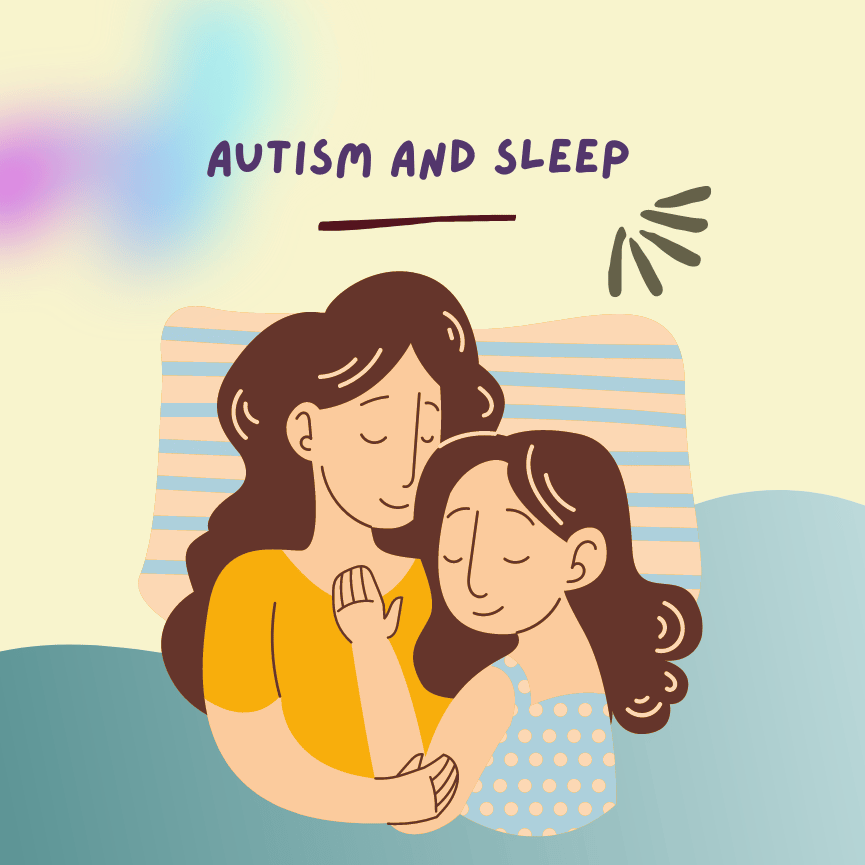
- May 09, 2024
- 178 Views
- 0 Comments
Snooze Solutions: Insights Into Autism And Sleep
Autism Spectrum Disorder (ASD) is a complex neurodevelopmental condition that affects millions of individuals worldwide. Among the myriad of challenges faced by those on the spectrum, sleep disturbances stand out as a common and often deeply disruptive issue. The importance of sleep for overall health and well-being cannot be overstated, and addressing sleep problems in individuals with autism is paramount. In this comprehensive guide, we will delve into the connection between autism and sleep, the specific sleep challenges faced by those on the spectrum, and provide actionable tips for establishing healthy sleep habits.
The Link Between Autism and Sleep
Before delving into the intricacies of sleep issues in autism, it's essential to have a basic understanding of Autism Spectrum Disorder. ASD is characterized by a range of symptoms that can vary significantly from person to person. These symptoms typically manifest in difficulties with social interaction, communication challenges, and repetitive behaviors or restricted interests. Sensory sensitivities are also common among individuals with autism, and these sensitivities can extend to the sleep environment.
The Prevalence of Sleep Problems in Autism
Research indicates that sleep disturbances are exceptionally prevalent in individuals with autism. In fact, it's estimated that between 50% and 80% of children and adolescents with ASD experience sleep problems. These issues can persist into adulthood, affecting both individuals with autism and their families. The reasons behind these sleep disturbances are multifaceted and can be linked to a variety of factors, including biological, environmental, and behavioral aspects.
Common Sleep Challenges in Autism
Understanding the specific sleep challenges faced by individuals with autism is crucial for devising effective strategies to address them. Here are some of the most common sleep problems encountered by those on the spectrum:
- Insomnia: Many individuals with autism struggle with insomnia, characterized by difficulty falling asleep or staying asleep. This can lead to prolonged periods of wakefulness during the night, leaving them and their families exhausted.
- Irregular Sleep Patterns: People with autism may exhibit irregular sleep patterns, such as staying awake for extended periods and then sleeping during the day. These erratic sleep-wake cycles disrupt daily routines and can interfere with other aspects of life, including education and employment.
- Nightmares and Night Terrors: Some individuals with autism experience frequent nightmares or night terrors, causing distress and anxiety during the night. These episodes can make it challenging to return to sleep.
- Sensory Sensitivities: Sensory sensitivities, common in autism, can make the sleep environment uncomfortable. Bright lights, loud noises, or uncomfortable bedding can all contribute to sleep disturbances.
- Medication Side Effects: Medications commonly prescribed to manage symptoms of autism may have side effects that affect sleep. It's essential to discuss potential sleep disruptions with a healthcare provider when considering treatment options.
Tips for Establishing Healthy Sleep Habits in Autism
Addressing sleep problems in individuals with autism requires a tailored approach that takes into account their unique needs and sensitivities. Here are some practical tips to help establish healthy sleep habits:
- Create a Consistent Bedtime Routine: Establish a regular bedtime and wake-up time, even on weekends. Create a calming bedtime routine that includes activities like reading a book, taking a warm bath, or practicing deep breathing exercises.
- Optimize the Sleep Environment: Make the bedroom a comfortable and sensory-friendly space. This may involve using blackout curtains, white noise machines, or weighted blankets to provide a sense of security. Ensure that the room is dark, quiet, and at a comfortable temperature for sleeping.
- Limit Screen Time Before Bed: The blue light emitted by screens can interfere with the body's natural sleep-wake cycle. Encourage individuals with autism to avoid screens at least an hour before bedtime.
- Manage Anxiety and Stress: Teach relaxation techniques such as mindfulness or meditation to help manage anxiety. Consider working with a therapist or counselor to address any underlying emotional issues that may be contributing to sleep disturbances.
- Diet and Nutrition: Be mindful of dietary choices, especially in the evening. Avoid caffeine and heavy, spicy, or sugary foods close to bedtime. Ensure that any necessary medications are taken well before bedtime to minimize potential disruptions.
- Regular Exercise: Encourage regular physical activity during the day, as it can promote better sleep at night. However, avoid vigorous exercise close to bedtime.
- Consult a Healthcare Professional: If sleep problems persist or worsen, it's essential to consult a healthcare professional with experience in treating sleep disorders in individuals with autism. Medication or other treatments may be considered under the guidance of a healthcare provider.
Sleep disturbances in individuals with autism can be challenging for both those on the spectrum and their families. However, with patience, understanding, and the implementation of tailored strategies, it is possible to establish healthy sleep habits. By creating a sleep-conducive environment, addressing sensory sensitivities, and teaching relaxation techniques, individuals with autism can experience improved sleep quality and overall well-being. It's crucial to recognize that each person with autism is unique, and what works for one individual may not work for another. Therefore, a personalized approach to sleep management is key to success. By promoting healthy sleep habits, we can enhance the quality of life for individuals with autism and support their overall development and well-being.



Comments - 0 comments till now